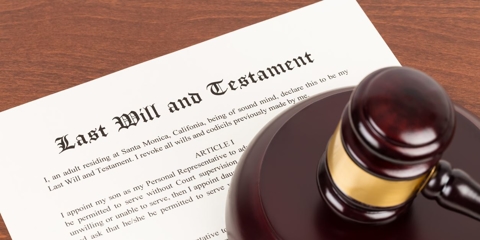Are Some Contracts Unenforceable?
If the history of the United States tells us anything, it is that the Country and its economy will survive the COVID-19 pandemic and come out of it even stronger. Still, the mandated restrictions placed on the public by the government, as well as the danger posed by the pandemic itself, is obviously causing a significant disruption to the economy and “business as usual.” This disruption includes making the performance of some contracts impracticable or even impossible.
COVID-19 Pandemic Can Void Contractual Obligations
Impracticability and impossibility of performance are ideas embodied in the legal doctrine of “commercial frustration,” which can void contractual obligations when the happening of a non-foreseeable event destroys or nearly destroys the purpose of the contract. However, if the subject event was something that could have reasonably been foreseen at the time the parties signed the contract, the commercial frustration doctrine will not excuse performance unless the contract explicitly states so. Many contracts will have specific “Force Majure” clauses, which are commonly used to protect parties from fulfilling contract obligations when the contract cannot be performed as a result of events outside of the parties’ control and that could not be avoided by the exercise of due care. See § 3.IV.K Force Majure, Construction Projects 3.IV.K
How to Know if COVID-19 Voids Your Contract
Whether or not a Force Majure clause or the doctrine of commercial frustration will excuse contractual performance depends on the specific facts of each case. In the case of commercial frustration, the event in question must not have been foreseeable by a reasonable person in the same or similar circumstances as the contracting parties. For example, a purchaser of a former landfill cannot get out of the purchase contract because the property ultimately tests positive for the presence of methane gas to such an extent that the property is uninhabitable. In those circumstances, if the purchaser knew or should have known he was purchasing a former landfill, then is was arguably foreseeable that the property could test positive for high levels of methane gas. See BancorpSouth Bank v. Hazelwood Logistics Ctr., LLC, No. 4:10CV590-HEA, 2011 WL 5900998, at *3 (E.D. Mo. Nov. 23, 2011), amended in part, adhered to in part, No. 4:10CV590-HEA, 2012 WL 34226 (E.D. Mo. Jan. 6, 2012), aff'd, 706 F.3d 888 (8th Cir. 2013), and aff'd, 706 F.3d 888 (8th Cir. 2013).
When Did the Parties Sign the Contract?
In the case of COVID-19, the pivotal questions will be when the parties signed the contract, what the parties knew or should have known at that time and whether the pandemic actually makes performance impossible or impracticable. Even if the steps the government has taken to avoid the spread of the virus could not have been foreseen, any judge or jury will still require proof that there was not some alternative performance available. The only way to know for sure whether the law will void the contract is to consult with a knowledgable Overland Park contract lawyer about the specific facts of the case.
Contact Gates Shields Ferguson Swall Hammond, P.A. online or call (800) 574-4428 for a free initial consultation.
We are backed by 260+ years of shared experience and we are here for you! Reach out to us today.





